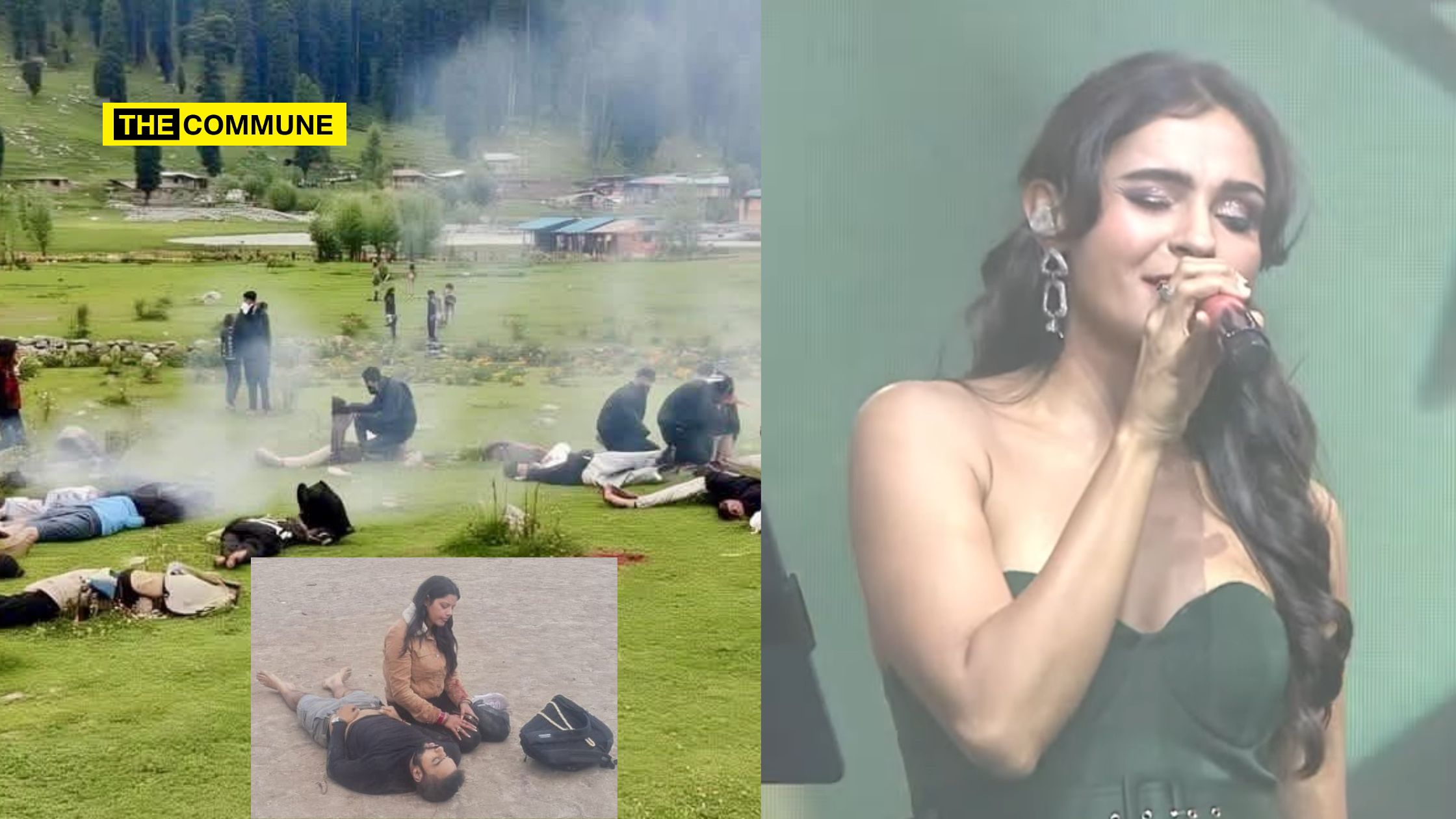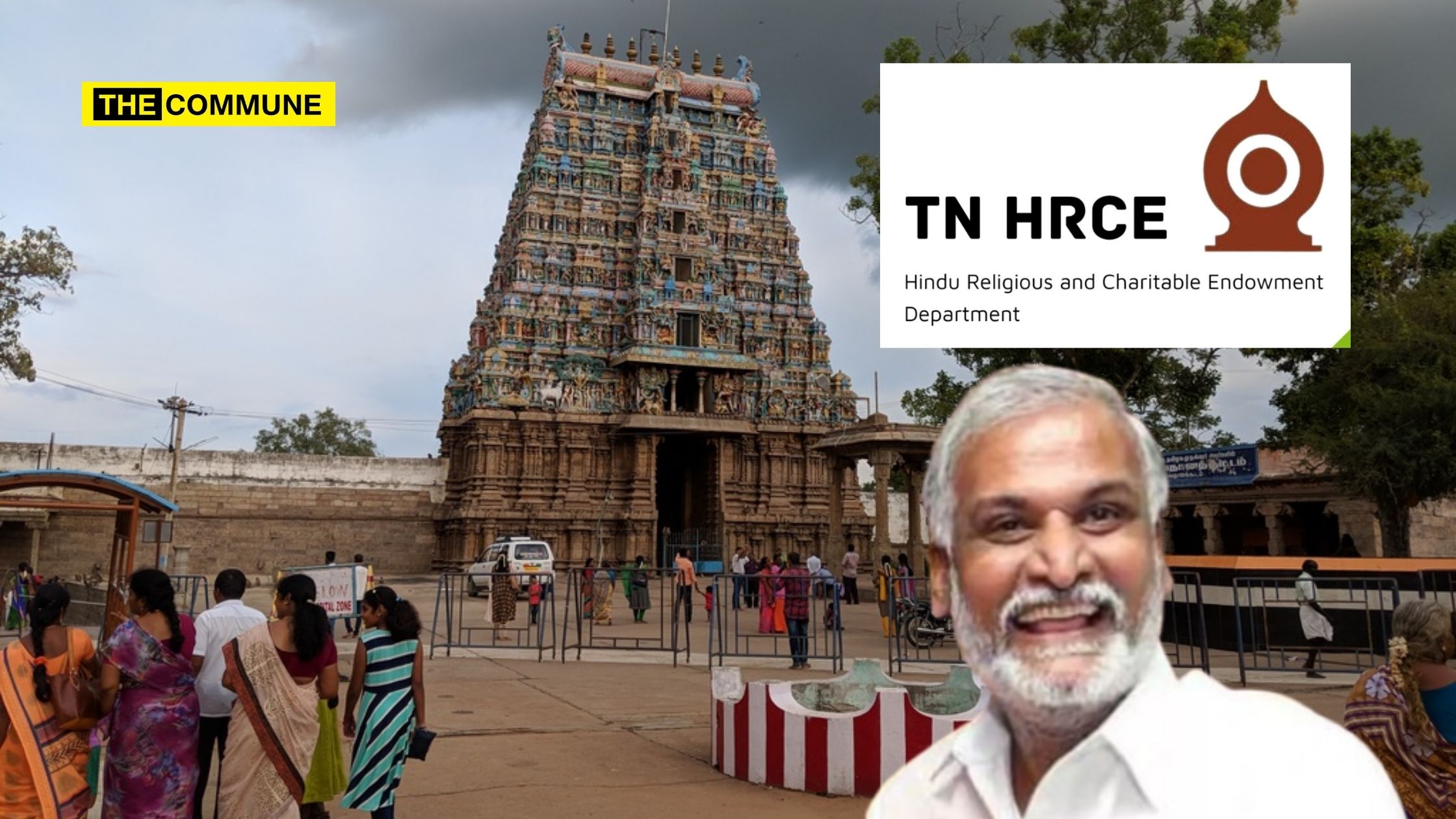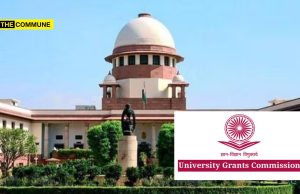
In the wake of a horrifying terrorist attack in Pahalgam, Jammu & Kashmir, where Hindu pilgrims were reportedly gunned down by Islamist extremists, actress and singer Andrea Jeremiah took to Instagram—not to unequivocally condemn the perpetrators—but to deliver a sermon on hate, polarisation, and surveillance.
Posting pictures from her earlier vacation in the scenic valley, Andrea wrote, “My heart goes out to the families of those affected by the terrorist attack 💔💔💔 But my heart also breaks for the people of Kashmir who will be subjected to even more surveillance & scrutiny after this incident 💔💔💔”. She went on to add that “there is no space for hate here, not on my comment section, not in our world.”
View this post on Instagram
At a time when Hindu families are grieving the targeted murder of their loved ones, Andrea’s call for “not being swayed by hate” appeared to many as tone-deaf and evasive—especially as she failed to name the community of the victims or the ideology behind the attackers.
Critics argue that this form of moral equivalence—where perpetrators of jihadist violence and their victims are treated as two sides of the same coin—is not just insensitive but dangerous. There was no mention of the radical Islamist groups behind the attack, no solidarity with Hindu victims as Hindus, and certainly no demand for justice or stronger anti-terror measures. Instead, the focus quickly shifted to a concern about increased surveillance of Kashmiri Muslims, as though the biggest worry after such a tragedy should be potential scrutiny rather than the act of terrorism itself.
Pushing The Narrative
Andrea seems to be peddling the larger leftist anti-Indian/Hindu narrative of blaming Hindus of ‘targeting a specific religion’ when it comes to terrorism. This also seems to be in line with those of her Dravidianist paymasters.
At the Tamil Nadu Global Investors Meet (GIM) in January 2024, she performed a series of Kollywood songs alongside composer Stephen Devassy. The event, which was supposed to highlight Tamil Nadu’s economic strengths and attract global investors, took a jarring turn when Andrea chose to sing “Oo Solriya Mama,” a song known for its vulgar choreography. She didn’t shy away from dancing to it either.
Many criticized the performance as crass and inappropriate for an international business summit. Some likened it to Maanada Mayilaada, a dance reality show once closely associated with the DMK and questioned whether the performance was a deliberate cultural signal given the ruling party’s historic ties with Kollywood’s more provocative elements. Critics argued that the event turned into a DMK-style jamboree, more about spectacle than substance.
The Dravidianist Whitewash: Virtue Signaling While Enabling Terror
Andrea Jeremiah’s Instagram post, while draped in the language of peace and anti-hate, ends up doing what many Dravidianist sympathizers in Tamil Nadu have perfected—subtly shifting blame away from the actual perpetrators and onto the system, the state, and society at large.
While Hindu tourists were hunted down in Pahalgam for their religion—forced to strip, checked for circumcision, and executed for not reciting the kalma—Andrea’s concern somehow drifts toward the “scrutiny” Kashmiris might face in the aftermath. That sentiment, echoed across the Dravidianist ecosystem, serves to downplay jihadist terror and reframe it as a problem of “polarization” or “Islamophobia.”
The same playbook was on full display when Dravidianist voices like Sundaravalli and Mathivadhani floated absurd conspiracy theories blaming the Indian Army or accused media of “communalizing” the tragedy. What Andrea posted might seem like a heartfelt call for unity, but in effect, it echoes a wider ideological effort to whitewash Islamist terror and cast suspicion on anyone who dares call it out. In the Dravidianist worldview, it is more acceptable to criticize a grieving nation than to confront the brutal truth about radicalization.
Selective Outrage?
At a time when an entire country is mourning the murder of innocents by religious extremists, Andrea Jeremiah’s social media post strikes many as a masterclass in selective outrage and misplaced empathy. While victims lie in coffins, she worries about comment sections. While Hindu tourists are hunted for their faith, she cautions against being “swayed by hate.” There’s a distinct failure to name the crime, the ideology, or the motive—an omission that has become common in certain elite cultural circles.
For many observers, Andrea Jeremiah’s post is yet another example of a larger problem—a tendency among public figures to deflect blame from perpetrators of religious terror and instead issue hollow calls for unity, conveniently avoiding any mention of Hindu suffering, very typical of leftists and Dravidianists.
Subscribe to our channels on Telegram, WhatsApp, and Instagram and get the best stories of the day delivered to you personally.




